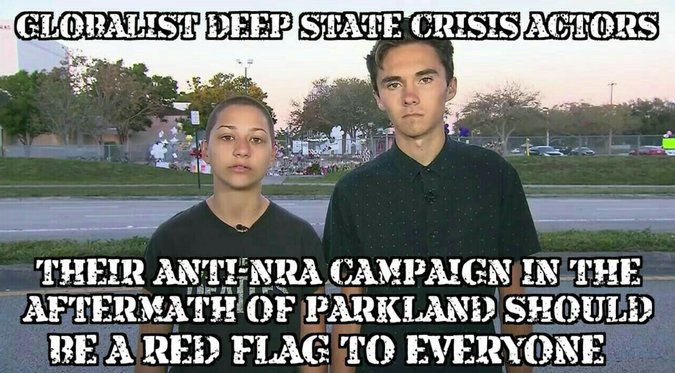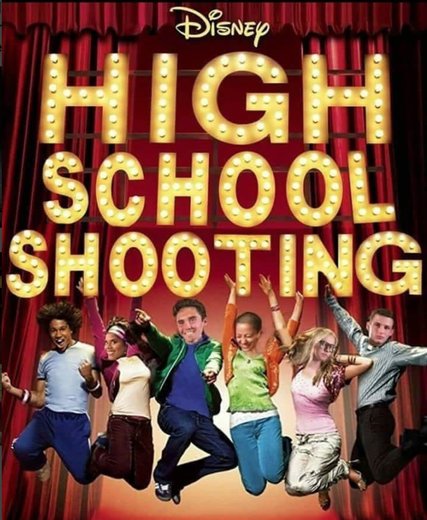The resilience of misinformation, despite efforts by the tech behemoths to eliminate it, has become a real-time case study of how the companies are constantly a step behind in stamping out the content. At every turn, trolls, conspiracy theorists and others have proved to be more adept at taking advantage of exactly what the sites were created to do — encourage people to post almost anything they want — than the companies are at catching them.

“They’re not able to police their platforms when the type of content that they’re promising to prohibit changes on a too-frequent basis,” Jonathon Morgan, founder of New Knowledge, a company that tracks disinformation online, said of Facebook and YouTube.
The difficulty of dealing with inappropriate online content stands out with the Parkland shooting because the tech companies have effectively committed to removing any accusations that the Parkland survivors were actors, a step they did not take after other recent mass shootings, such as last October’s massacre in Las Vegas. In the past, the companies typically addressed specific types of content only when it was illegal — posts from terrorist organizations, for example — Mr. Morgan said.
Facebook and YouTube’s promises follow a stream of criticism in recent months over how their sites can be gamed to spread Russian propaganda, among other abuses. The companies have said they are betting big on artificial intelligence systems to help identify and take down inappropriate content, though that technology is still being developed.
The companies have in the meantime hired or said they plan to hire more people to comb through what is posted to their sites. Facebook said it was hiring 1,000 new moderators to review content and was making changes to what type of news publishers would be favored on the social network. YouTube has said that it plans to have 10,000 moderators by year’s end and that it is altering its search algorithms to return more videos from reliable news sources.
Mary deBree, head of content policy at Facebook, said the company had not been perfect at staving off certain content and most likely would not be in the future.
“False information is like any other challenge where humans are involved: It evolves, much like a rumor or urban legend would. It also masks itself as legitimate speech,” she said. “Our job is to do better at keeping this bad content off Facebook without undermining the reason people come here — to see things happening in the world around them and have a conversation about them.”

A YouTube spokeswoman said in a statement that the site updated its harassment policy last year “to include hoax videos that target the victims of these tragedies. Any video flagged to us that violates this policy is reviewed and then removed.”
Advertisement
Continue reading the main story
For many people, getting around Facebook and YouTube’s hunt to remove noxious content is straightforward. The sites have automated detection systems that often search for specific terms or images that have previously been deemed unacceptable. So to evade those systems, people sometimes can alter images or switch to different terminology.
Sam Woolley, an internet researcher at the nonprofit Institute for the Future, said far-right groups had started using internet brands to describe minorities — like “Skype” to indicate Jewish people — to trick software and human reviewers.
Those who post conspiracy theories also tend to quickly repost or engage with similar posts from other accounts, creating a sort of viral effect that can cause the sites’ algorithms to promote the content as a trending topic or a recommended video, said David Carroll, a professor at the New School who studies tech platforms.
That duplication and repackaging of misinformation “make the game of snuffing it out Whac-a-Mole to the extreme,” he said.
That game played out across the web in the past few days, after a video suggesting that one of the most vocal Parkland survivors, David Hogg, was an actor became the No. 1 trending video on YouTube. After a public outcry, YouTube removed the video and said it would take down other “crisis actor” videos because they violated its ban on bullying. YouTube has since scrubbed its site of many such videos.
Yet some of the videos remained, possibly because they used slightly different terminology. One clip that had drawn more than 77,000 views by Friday described the shooting survivors as “disaster performers” instead of “crisis actors.”
Other videos that were not about the Parkland survivors but that called the entire shooting into question also stayed online. A video posted last week by Alex Jones, the founder of the conspiracy theory site Infowars, titled “Red Alert! Evidence Mounts Florida Attacks Is a Giant False Flag” had attracted more than 300,000 views by Friday.
Advertisement
Continue reading the main story
On Facebook, some of the posts the social network had vowed to ban were still gaining traction. One lengthy post had been shared more than 3,800 times by early Friday. The post included a photo of Mr. Hogg and his classmate Emma Gonzalez with the text “Globalist Deep State Crisis Actors.”
After The New York Times contacted the author of the post, a self-described political analyst named John Miranda, the post disappeared. It is unclear if Facebook removed it. Mr. Miranda did not respond to a request for comment.
The tech companies’ increasing efforts to remove misinformation have a side effect: angering some of their most active users.
Moe Othman, a comedian and commentator on YouTube who has about 60,000 subscribers, said that within 10 minutes of posting a video on Wednesday that suggested some Parkland students were actors, YouTube removed it and placed a strike on his account. YouTube terminates accounts after three strikes.
Mr. Othman said in a private message on Twitter: “I’m not surprised. We live in a world where information is one of the most important tools.” He added, “In this case, I see YouTube as a censoring machine.”
Would he stop using YouTube? No, he said, “mainly because I’m still a comedian who simply wants to make people laugh.”
Continue reading the main story
Article source: https://www.nytimes.com/2018/02/23/technology/trolls-step-ahead-facebook-youtube-florida-shooting.html?partner=rss&emc=rss
Speak Your Mind
You must be logged in to post a comment.